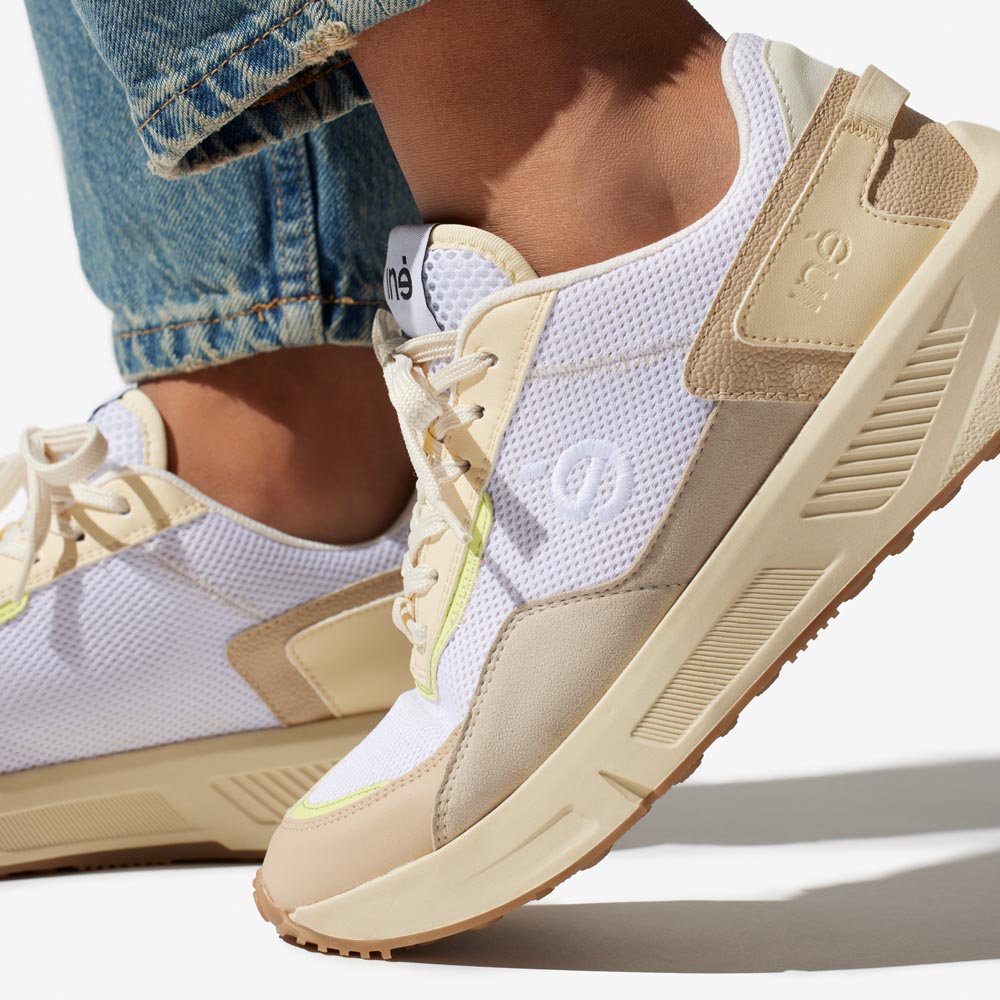Vegan Shoes: Everything You Need to Know About This Ethical and Eco-Friendly Alternative
From food to fashion, it’s hard to ignore the word “vegan” these days. But what does it really mean?
According to its definition, being vegan means adopting a lifestyle that excludes all animal-derived materials in every aspect of daily life. This means not consuming or using products that contain meat, fur, leather, wool, silk, or animal fats. It also involves avoiding products tested on animals, such as certain cosmetics and cleaning products.
While often associated with diet, veganism goes far beyond food and applies equally to clothing, personal care products, and household items. At the heart of this lifestyle lies a core principle: the rejection of animal exploitation.
Vegan sneakers follow the same ethical principles as a vegan diet, excluding all animal-based materials (leather, wool, animal-derived fabrics, etc.). Every aspect of their production is carefully considered to honor this commitment. Popular in eco-conscious fashion, these next-gen sneakers are attracting growing interest.
They are mainly made from three types of materials:
-
Natural fibers: linen, cotton
-
Synthetic materials: polyurethane, polyester, microfiber, and other processed industrial fabrics
-
Plant-based leather alternatives: made from organic waste such as apple, grape, pineapple, cactus, and corn
Dedicated vegan sneaker factories are still relatively rare worldwide. That’s why these shoes are often handcrafted in certified workshops. This approach not only supports local craftsmanship but also helps reduce environmental impact.
Once the prototype is designed by the brand’s creative team, the materials are chosen from a wide range of plant-based leather alternatives derived from plants or fruits:
-
Piñatex (made from pineapple leaves): Resembling canvas, this plant-based leather is praised for its softness, flexibility, and durability—an excellent choice for sneakers.
-
Apple Skin (made from recycled apple waste): It has a slightly more textured grain than animal leather, while offering comparable strength.
-
BioVeg (a corn-based leather alternative): A strong material made from corn husks. Soft, available in multiple colors, it’s durable, flexible, and lighter than traditional leather. Our vegan sneakers, for example, are made using this innovative material.
-
Desserto (made from cactus leaves): Grown in Mexico using organic practices, this material stands out for its low water consumption, as cacti naturally absorb moisture from the air.
-
Vegea (made from grape waste): Produced from dehydrated grape pomace mixed with grape oil, recycled polyester, and a water-based polymer, this is a solid and innovative material.
-
Muskin (made from mushrooms): Less common, this plant-based leather alternative has a short production cycle. While cattle must reach full size before being used, mushrooms grow in just a few weeks.
These plant-based alternatives offer a way to combine fashion, innovation, and environmental responsibility.
At iné, we chose BioVeg—made from non-food, GMO-free corn—alongside other natural or recycled materials.
Discover our collection of vegan, unisex sneakers at iné.fr.


Leave a comment